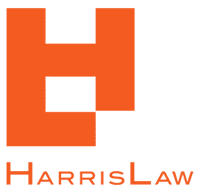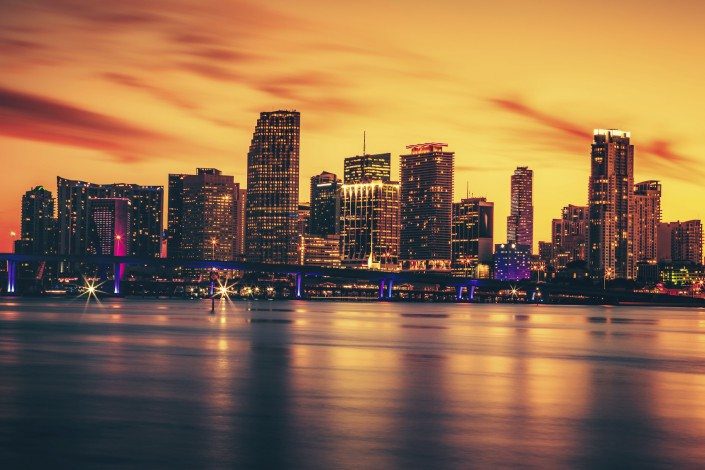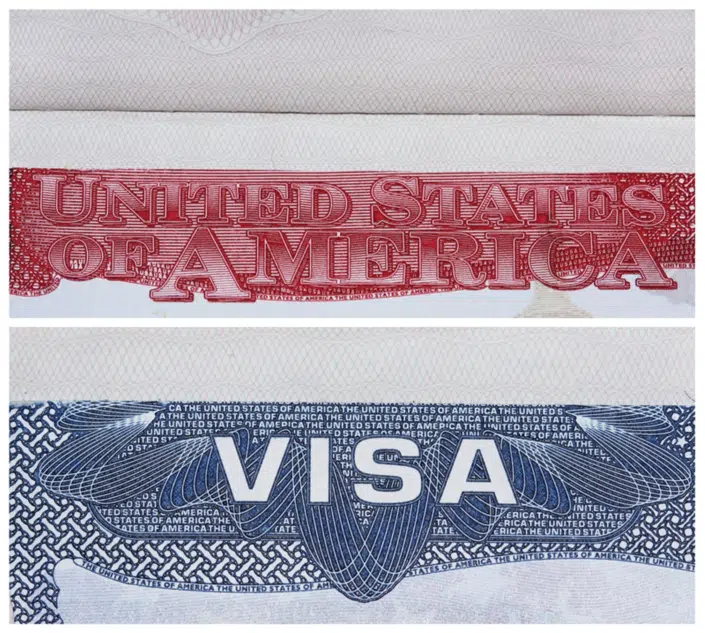When Personal Injury Meets Immigration: A Comprehensive Guide for Foreign Nationals in the U.S.
Personal injuries can have profound implications on the immigration status of foreign nationals in the U.S., often creating a complex intersection between personal injury law and immigration law. Whether it’s a car accident, a slip and fall, or a workplace injury, the repercussions can extend far beyond immediate medical concerns. Foreign nationals may find themselves navigating not only the healthcare system but also intricate immigration regulations that could jeopardize their legal status in the country.
This guide aims to serve as a comprehensive resource that delves into specific scenarios affecting different visa types. From tourists on vacation to specialized workers and students, we illustrate how an injury can significantly impact one’s immigration status, ability to work, or continue education. Moreover, we emphasize why expert legal guidance is not just beneficial but often essential in these situations. By understanding the potential challenges and legal intricacies involved, foreign nationals can take informed steps to protect both their health and legal standing in the United States.
Tourists on Vacation
The Impact of Injuries on Temporary Visitors
Tourists visiting the United States often come with the anticipation of a memorable experience, be it exploring cities, enjoying scenic landscapes, or embarking on cruise vacations. However, accidents and injuries are unpredictable events that can turn a dream vacation into a logistical and legal nightmare. For instance, consider a tourist on a B-2 visa who is enjoying a cruise vacation and suddenly slips on a wet deck, resulting in a fractured leg. The immediate concern is, of course, medical treatment, but the situation quickly escalates into a complex legal maze that extends beyond the emergency room.
The injured tourist may require surgery, physical therapy, and an extended period of recovery, which could necessitate an extended stay in the U.S. beyond the duration initially permitted by their B-2 visa. Overstaying a visa can have severe immigration consequences, including potential bans from future entry into the United States. Additionally, the injured tourist may face challenges with insurance claims, especially if their travel or health insurance doesn’t adequately cover medical expenses in the U.S.
In such intricate situations, consulting with immigration specialists at our firm becomes crucial. Expert legal guidance can help navigate the complexities of extending a visa under exceptional circumstances, liaising with insurance companies, and ensuring that the injured tourist’s legal status remains uncompromised. Moreover, we can provide invaluable advice on how to interact with healthcare providers and legal authorities, ensuring that the tourist’s rights are upheld throughout this challenging period.
E-1 and E-2 Visa Holders
When Business Operations are Affected by an Injury
Entrepreneurs and business owners who come to the United States under E-1 visas and E-2 visas are often deeply invested in their enterprises, both financially and personally. These visas require not only a substantial investment but also active involvement in the business. However, life’s unpredictability can strike at any moment, throwing both business operations and immigration status into jeopardy.
Imagine an E-2 investor who owns a thriving restaurant and is involved in its day-to-day management. A severe car accident results in significant injuries, requiring hospitalization and a long recovery period. The immediate aftermath of such an accident is not just physical pain but also the looming threat of a temporary or even permanent closure of the business.
In such a scenario, the E-2 visa holder faces a dual challenge. First, there’s the medical recovery, which is stressful enough. Second, there’s the potential violation of E-2 visa conditions, which mandate a substantial investment and active management of the business. A temporary closure could be perceived as a substantial change in business activities, putting the visa status at risk.
This is where the expertise of a immigration specialist becomes invaluable. Timely legal consultation can guide the E-2 visa holder through the labyrinthine immigration laws and regulations. Strategies such as business restructuring, temporary management solutions, or even visa status adjustments can be explored to safeguard both the investment and the immigration status of the individual. HARRISLAW can also liaise with other legal and financial advisors to ensure a holistic approach to resolving the crisis.
F-1 Students
Injuries and Academic Pursuits
International students in the United States on an F-1 visa are here primarily for academic advancement. The excitement of studying in a new country, however, can be abruptly halted by an unexpected injury. Such an event can have a ripple effect, affecting not only the student’s health but also their academic commitments and, by extension, their immigration status.
Consider the case of an F-1 student who is an avid soccer player and sustains a severe knee injury during a match. The injury requires surgery and a prolonged period of rehabilitation, making it impossible for the student to attend classes for an extended period. F-1 visa regulations require that the student maintain full-time enrollment, and failure to meet this requirement can result in the termination of the student’s visa status.
In this complex situation, the student faces several challenges. First, there’s the immediate need for medical attention and subsequent recovery. Second, there’s the looming issue of falling below the full-time enrollment requirement, which is a cornerstone of maintaining F-1 status.
This is where expert legal guidance becomes indispensable. The student can explore options such as taking a medical leave of absence, which some educational institutions allow under specific conditions. Timely and transparent communication with the educational institution is crucial, as schools often have protocols for students facing medical emergencies.
Legal consultation can also provide insights into navigating the U.S. healthcare system, dealing with insurance matters, and understanding the implications of taking a leave of absence on future employment opportunities under Optional Practical Training (OPT). We can guide the student through these multifaceted challenges, ensuring that they can focus on recovery without jeopardizing their legal status.
H-1B Workers
Rights and Responsibilities After an Injury
The H-1B visa program allows U.S. employers to temporarily employ foreign nationals in specialty occupations. While the program offers numerous opportunities, it also comes with a set of regulations and responsibilities for both employers and employees. When an H-1B worker sustains an injury, the situation becomes particularly complex, as it intersects with employment law, healthcare regulations, and immigration rules.
Imagine an H-1B worker employed at a construction site who suffers a severe injury due to a machinery malfunction. According to the Department of Labor (DOL) regulations, the employer is obligated to continue paying the worker, even if they are unable to perform their job duties while recovering. Failure to do so could result in penalties for the employer and could jeopardize the worker’s H-1B status, which is contingent on continued employment.
On the flip side, consider an H-1B worker who sustains an injury while hiking during a weekend getaway. In this scenario, the employer’s obligations may not be as clear-cut. While the employer may not be legally required to pay the worker for the time they are unable to work, other factors such as employment contracts, company policies, and state laws could influence the employer’s responsibilities.
Navigating these nuanced situations requires expert legal guidance, making a consultation with an immigration specialist is essential. Legal advice can help clarify the obligations of both the employer and the employee under DOL rules, employment contracts, and H-1B regulations. Additionally, we can work with the injured worker’s personal injury counsel who will guide them through the complexities of the U.S. healthcare system, including insurance claims and medical leave policies, ensuring that the worker can focus on recovery without the added stress of potential immigration issues.
L-1 and O-1 Workers
Understanding Rights in Case of Injuries
The United States welcomes a diverse range of talents through various visa programs, including the L-1 visa for intra-company transferees and the O-1 visa for individuals with extraordinary abilities. While these visas offer unique opportunities, they also come with specific requirements and responsibilities that can become particularly complicated in the event of an injury.
Scenario for L-1 Manager
Consider an L-1 manager responsible for overseeing a critical department within a multinational corporation. A severe car accident results in multiple fractures, requiring an extended period of hospitalization and rehabilitation. The immediate concern is, of course, the manager’s health and recovery. However, the inability to perform managerial duties due to the injury can put the L-1 status at risk, as fulfilling specific job responsibilities is a key requirement for maintaining this visa.
Scenario for O-1 Artist
Similarly, imagine an O-1 artist renowned for their live performances. A stage accident leads to a severe back injury, affecting their ability to perform for several months. The O-1 visa is contingent on the individual’s extraordinary abilities and their active engagement in their field. An extended absence from performing could, therefore, jeopardize their visa status.
In both scenarios, the injured workers face a multi-layered challenge. First, there’s the immediate need for medical attention and a potentially long recovery period. Second, there’s the complex issue of maintaining their visa status, which is closely tied to their professional activities.
This is where the expertise of our firm becomes invaluable. Legal consultation can help these workers understand their rights and obligations under their respective visa categories. Strategies such as temporary reassignment, medical leaves of absence, or even visa status adjustments can be explored to ensure that the visa status remains secure during the recovery period.
P-1 Athletes
Injuries in Competition
The P-1 visa category is designed for athletes who are internationally recognized for their performance, allowing them to compete in the United States. While the opportunity to participate in high-level competitions is a privilege, it also comes with its own set of risks, particularly the risk of injury. When a P-1 athlete sustains an injury during a scheduled competition, the situation becomes especially complex, involving not just medical and healthcare considerations but also contractual and immigration-related challenges.
Scenario: Injury During a Major Competition
Imagine a P-1 athlete participating in a major league soccer or MLS tournament who suffers a torn ACL during a match. The injury is severe enough to require surgery and a lengthy period of rehabilitation, effectively sidelining the athlete for the remainder of the season. The immediate concern is the athlete’s health and well-being, but the implications extend far beyond the medical treatment.
Firstly, the athlete’s contract with the team or sponsoring organization often contains clauses related to injuries and the ability to compete. The terms of the contract may dictate whether the athlete continues to receive compensation during the recovery period, and failure to fulfill contractual obligations could even result in termination.
Secondly, the P-1 visa status is closely tied to the athlete’s participation in competitions. An extended absence from the sport due to injury could put the visa status at risk, as the athlete may no longer meet the criteria of participating at an internationally recognized level.
Navigating these multifaceted challenges requires specialized legal expertise. Consultation with us can provide invaluable support in understanding the athlete’s rights and obligations under both the employment contract and the P-1 visa regulations. Strategies such as contract renegotiation, medical leaves of absence, or even visa status adjustments can be explored to ensure that the athlete’s immigration status remains secure while they focus on recovery.
Lawful Permanent Residents
Rights and Considerations
Lawful Permanent Residents (LPRs), commonly known as green card holders, enjoy many of the same rights as U.S. citizens, including the right to work and reside in the United States indefinitely. However, when an LPR sustains an injury, particularly one that affects their ability to work or requires a prolonged absence from the U.S., the situation can become complex, involving both employment law and immigration considerations.
Scenario: Injury in a Factory Setting
Consider an LPR who works in a factory and sustains a severe injury due to equipment malfunction. In such a case, the LPR enjoys rights similar to U.S. citizens, including the right to workers’ compensation and other employment benefits. The immediate concern is, of course, medical treatment and recovery, but the LPR also has the right to legal protections against wrongful termination and discrimination based on their injury.
Scenario: Extended Absence for Medical Treatment Abroad
Now, imagine a different situation where the LPR obtained their green card through employment-based sponsorship and decides to travel abroad for an extended period for medical treatment. While LPRs generally have the freedom to travel outside the U.S., a prolonged absence could raise questions about their intent to maintain permanent residence in the U.S. This is especially critical if the LPR obtained their status through an employer, as the basis for their green card is tied to their employment in the United States.
In such complex scenarios, expert legal guidance from our firm becomes crucial. For LPRs considering an extended absence from the U.S., strategies such as obtaining a re-entry permit can be explored to safeguard their immigration status.
Temporary Visa Holders and B-1 Tourist Visas
Litigation and Legal Status
Foreign nationals in the United States on temporary visas often come for specific purposes, such as work, study, or tourism. However, unforeseen circumstances like personal injuries can sometimes lead to legal disputes, adding another layer of complexity to their already intricate immigration status. In such cases, changing to a B-1 Tourist visa may become a viable option, especially if the individual needs to remain in the U.S. for an extended period to resolve the legal matter.
Scenario: Legal Dispute Following a Personal Injury
Imagine a foreign national on an H-1B visa who gets involved in a severe car accident and decides to sue the responsible party for damages. The legal proceedings could take months, if not years, to resolve. Given that the H-1B visa has a fixed period of validity, the individual may face challenges in maintaining their status throughout the duration of the litigation.
B-1 Tourist Visa for Litigation
According to the Foreign Affairs Manual (FAM), B-1 Tourist visas can be used for individuals who need to be in the U.S. for litigation purposes. This provision allows the foreign national to change their status to a B-1 visa, enabling them to legally remain in the country while their legal dispute is being resolved.
Alternative Options: Deferred Action and Humanitarian Parole
In some cases, other options like “deferred action” or Humanitarian Parole may also be considered. Deferred action is a discretionary measure that temporarily postpones removal actions against an individual. Humanitarian Parole allows individuals to enter or remain in the U.S. temporarily due to a compelling emergency. Both options are complex and require careful navigation of U.S. immigration laws.
In these multifaceted situations, expert legal guidance becomes indispensable. A consultation with us can provide invaluable insights into the best course of action for maintaining legal status while involved in a legal dispute. From assisting with the change of status application to advising on alternative options, we can ensure that the individual’s immigration status remains secure as they navigate the complexities of the U.S. legal system.
Conclusion
Injuries can have intricate and far-reaching effects on the immigration status of foreign nationals in the U.S. The complexities of navigating both healthcare and immigration systems can be overwhelming, especially when you’re dealing with the physical and emotional toll of an injury. Whether you are a tourist, student, worker, or permanent resident, understanding your rights and responsibilities is crucial for maintaining your legal status and safeguarding your future in the United States.
Comprehensive Legal Support Across the U.S.
HARRISLAW is not just an expert in immigration law; we are also your trusted partner in finding the right personal injury or plaintiff lawyer to represent you. Our firm represents foreign nationals across the United States, including states like Florida, Texas, California, and North Carolina. In these states, where the legal profession offers board certification for specialists, our firm can further assist you in finding a board-certified specialist in personal injury or plaintiff law. Our extensive network and deep understanding of both immigration and personal injury law make us uniquely positioned to offer holistic legal support.
Tailored Solutions for Complex Challenges
Our firm takes a comprehensive approach to legal challenges, ensuring that you receive expert guidance not just in immigration matters but also in any ensuing legal disputes arising from your injury. We work closely with you to understand the nuances of your situation and tailor our advice to meet your specific needs.
Your Trusted Legal Partner
HARRISLAW is here to guide you through these complex legal landscapes, ensuring that you can focus on your recovery while we take care of the legal intricacies. Our commitment to excellence and our holistic approach to legal challenges make us the go-to firm for foreign nationals facing the dual complexities of personal injuries and immigration issues.
Disclaimer: The following is not legal advice. It is intended for informational purposes only. For personalized legal assistance, please reach out to us at HARRISLAW for a consultation.
